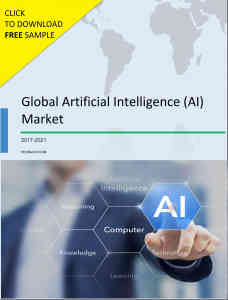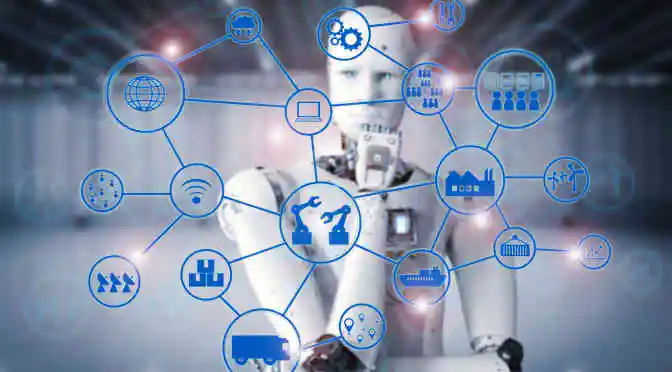One of the major catalysts of the fourth industrial revolution will be Artificial Intelligence (AI). Indeed, AI is all the rage these days, from self-driving cars to chatbots to smartphone based personal assistants and email scheduling applications that promise to take routine tasks out of human hands.
Whether it is by chipmakers, tech conglomerates, software companies or hardware makers, the claims about the promise and peril of AI technology are abundant and incrementing in number. AI, which allows robots to exhibit human-like cognition, can make our cities efficient, our cars safer, help us discover disease-fighting drugs faster, empower corporate enablers, and improve the overall condition of our lives.
Artificial intelligence represents the next frontier of the digital renaissance
Tech giants, online firms and digital native companies such as Apple, Google, Baidu, and Amazon are investing billions of dollars in a range of technologies known collectively as Artificial Intelligence. As per a recent study, anywhere between $20 billion and $30 billion has been invested in AI technology last year.
 Let’s look at some of the ground-breaking applications of artificial intelligence, and, most importantly, how this technology is helping companies to overcome the challenges they face in their day-to-day operations.
Let’s look at some of the ground-breaking applications of artificial intelligence, and, most importantly, how this technology is helping companies to overcome the challenges they face in their day-to-day operations.
1) Taking healthcare to an omnipresent and accessible plane
A contested viewpoint is that AI is on the brink of becoming a game-changer in healthcare, specifically in terms of diagnosing and treating patients with severe diseases, like diabetes and cancer. There are many challenging obstacles that a medical institution faces while providing optimum healthcare services. According to a recent research, there is currently a shortage of more than seven million physicians and health workers around the world, and the gap is steadily widening.
Doctoring resources are stretched thin, particularly in underserved areas, in terms of responding to an elevated number of medical issues as reported by the ever increasing human population. Meanwhile, training physicians and health workers is an arduous process that demands years of education, domain expertise and professional experience. Fortunately, AI can help the healthcare industry to overcome several present and future challenges.
From managing medical records to designing evidenced-based plans and replacing humans in repetitive tasks, AI has several implications where versatility is called for in the healthcare sector. Predictive analytics, clinical decision support, and precision medicine are some of the more promising use cases for AI technology and developments in these areas are already underway.
2) AI is crafting effective customer experience in the retail sector
The retail industry has been going through a tough time over the past few years, with stores closures happening at an unprecedented rate. As brick-and-mortar stores struggle to survive, the question of how retailers can entice customers to visit their shops is taking on a new level of urgency. Thankfully, advances in AI, predictive analytics, and machine learning tools offer solutions to help retailers understand the scope of the ‘online’ challenge and implement core changes, including administrative updates, that can better streamline the business and offer versatility where it is needed.
The use of artificial intelligence in retail can generate several benefits. First, it helps retailers make smarter decisions with real-time and more accurate forecasting. Secondly, AI can make store operations more efficient, thanks to a combination of process optimization and robotics that reduces manual labor costs and enhances productivity. Progressively, AI will not only enable retailers to increase their customer base, but also encourage consumers to spend more by creating convenient shopping experiences.
3) Helping build smarter automobiles
The automobile sector continues to face a dynamic set of obstacles. Globalization, increased competition, shifting market conditions, cost pressure and volatility are leading to a significant transformation in the industry landscape. With changing usage models and the emergence of self-driving cars heightening customer expectations, the auto industry is on the brink of a revolution. Herein, one discipline that has demonstrated immense opportunity to deliver competitive advantage is analytics.
AI and machine learning algorithms have found a sophisticated level of applicability in this industry. The most common automobile application for AI is self-driving vehicles. In this context, AI is being used to learn human behavior and understand how to respond to different driving conditions. This includes sensing how to gauge weather conditions, how other cars behave, road obstacles and several other factors that must be considered before autonomous vehicles take over the roads. This could ultimately revolutionize many industry verticals- from delivery companies and public transportation to taxis and ride sharing applications like Uber.
4) Transforming how we learn and teach
Over the past few years, software, hardware, and online technologies are taking the education sector by storm and have managed to bring about timely changes where traditional teaching methods are concerned. However, the real disruption of technology in education is yet to arrive. Today, artificial intelligence is showing promise in its ability to permanently change the way we learn, teach, assimilate educational tools and invent new channels of learning.
A recent research report by Technavio deciphers how AI will positively transform the education sector in the coming years. As per the report, “The future offers the potential of even better and sophisticated tools. The learning companions powered by AI can support individual learners throughout their studies and the new methods of assessment can measure learning and seamlessly shape the learning experience in real-time. These empowering applications of artificial intelligence in education are truly transforming the way educators teach, and students learn.”
5) Smart and profitable manufacturing with artificial intelligence
The global manufacturing industry has come a long way in automating factories with computers and robots. Over the last four decades, industrial robots and palletizer systems have replaced human workers for repetitive tasks. The early bots were machines with limited applicability that could only perform a single task. However, today, the industry is racing towards its next automation breakthrough using AI to make real-time production decisions.
Today, all factories are equipped with cutting-edge sensors that help detect defects in manufactured products. This data is eventually fed onto the cloud, which immediately pulls the defective parts from the production line and orders the replacement. Consequently, this real-time problem solving can save manufacturers billions of dollars in repairs and lost business.
AI promises to take care of all the mundane tasks workers handle presently, freeing up the latter’s time to be more productive and creative in carrying out the works that machines cannot perform.
6) Improving energy output by turning smart grids smarter
The electric utility industry has great potential to embrace AI. From power generation, to opportunities for robotics, the impact of machine learning is immense at every step of the value chain. Decision-making automation using artificial intelligence helps electric utilities better predict demand and supply, reduce downtime, maximize yield, balance the grid in real-time, and improve the overall customer experience.
The increasingly complex and sophisticated networks, combined with highly uncertain supply and demand, aging critical capital assets, cost pressures, price deregulation and non-linear power loads is engineering real momentum for robotics and artificial intelligence.
7) Sustainably feeding the world
The growing world population is driving increased consumption and consequently, exerting enormous pressures on the agricultural production facilities. Farmers are working hard to address this challenge, and artificial intelligence is playing a pivotal role in helping keep up with the demand. This dramatic change mirrors the fact that until recently, agriculture was ranked near the bottom in a survey that focussed on the state of digitization across various commercial verticals. Now, the scene is changing swiftly as agriculture adopts and adapts to digitalization.
With this technological transition, farm data is becoming richer and more robust. Consequently, the availability of a vast amount of data is paving the way for the development and deployment of AI in agriculture. The latter has the potential to become a powerful tool that can help farmers cope with the increasing complexity in modern farming.



